�L����
Japan officials reveal Fukushima radiation release quadruple what they claimed — TV: �gFukushima disaster has been evaluated as the worst�h — Gov�ft has no explanation for what happened — Expert: �gMassive leak for such a long period�c We have to take precautions to prevent a recurrence�h (VIDEO)
���{���ǂ͕����̕��˔\���o�ʂ��A�����������咣�������̂̂S�{�ł��邱�Ƃ𖾂炩�ɂ���|�e���r���F�u�����̍ЊQ�͍ň��Ƃ��ĕ]������Ă��܂��|���{�́A�����N�������̂����̐���������܂���|���ƁF�u���̂悤�Ȓ������Ԃɑ�K�͂ȃ��[�N...��X�́A�Ĕ���h�����߂̗\�h�[�u�����Ȃ���Ȃ�Ȃ��v�i�^��j
Published: December 22nd, 2014 at 11:46 am ET�@By ENENews
���J�F2014�N12��22���A�ߑO11:46 ET�@ENENews�ɂ��
NHK, Dec 21, 2014 (emphasis added): More radioactive materials released after crisis — The Japan Atomic Energy Agency says 75 percent of the radioactive substances released from the Fukushima Daiichi Nuclear Power Plant came more than 4 days after the accident. The government�fs investigation has not released what happened during this period. Experts say the reason needs to be determined as to why massive amounts of radioactive materials continued to be released�c The nuclear accident in Fukushima has been evaluated as the worst�c
NHK�A2014�N12��21���i�����͋L�ҁj�F����R�̕��ː��������A��@�̌�ɕ��o���ꂽ�|���{���q�͌����J���@�\�́A������ꌴ�q�͔��d��������o���ꂽ���ː�������75�����A���̌�4���Ԃ����X�Ɂi�ォ��j�����A�Əq�ׂĂ��܂��B���{�̒����́A���̊��Ԓ��ɉ����N�������������\���Ă��Ȃ��B���Ƃ́A�Ȃ���K�͂ȗʂ̕��ː����������o���ꑱ���������R���m�肷��K�v������A�ƌ����Ă��܂�...�����̌������͍̂ň��Ƃ��ĕ]������Ă���...
But the details on how the substances were released remain unknown�c Japan Atomic Energy Agency collected new data on radiation detected near the plant over time to analyze how radioactive materials were released into the air. The research has found that an estimated 470,000 terabecquerels of radioactive substances had been released by the end of March 2011�c
�������A�������@���ɂ��ĕ��o���ꂽ���̏ڍׂɂ��Ă͕s���̂܂܂ł�...���{���q�͌����J���@�\�́A�ǂ̂悤�ɂ��ĕ��ː���������C���ɕ��o���ꂽ�͂��邽�߂ɁA���Ԃ������Č����̋߂��Ō��o�����V�������˔\�f�[�^�����W�����B�����́A����47���e���x�N�����̕��ː�������2011�N3���̏I���܂łɕ��o����Ă������Ƃ����o����...
The research group says 25 percent [1/4] of the radioactive materials were released during the first 4 days�c while 75 percent were released over the 2-week period that followed�c radioactive substances released between March 20th and 21st spread to a wider area, including the Kanto region, and are believed to have contaminated drinking water supplies�cThe government�fs investigation has focused on the first 4 days, and has not determined the cause of the massive release of radioactive substances following that period.
�����O���[�v�́A���ː�������25��[1/4]�͍ŏ���4���Ԃŕ��o���ꂽ�A�Əq�ׂĂ��܂�...���75�����A���̌��2�T�Ԃ̊��Ԃɂ킽���ĕ��o����Ă���...���ː�������3��20����21���̊Ԃɂ��L���G���A�ɋy��ŕ��o���ꂽ�A�֓��n�����܂߂āA�����Ĉ������������������ꂽ�ƍl�����Ă���...���{�̒����͍ŏ���4���ɏœ_�ĂĂ���A�����Ă��̊��ԂɈ����������ː������̑�ʕ��o�̌��������ł��Ă��Ȃ��B
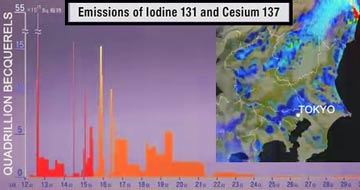
Note the government�fs previous investigation focused on releases between March 11 and March 15, which they now say accounted for just 1/4 of the radioactive substances emitted. This would mean that their new estimate of the total radioactive release is 4 times the estimate d based on the initial investigation.
���{�̂���܂ł̒�����3��11����3��15���̊Ԃ̕��o�ɏœ_�Ă����Ƃɒ��ӂ��ĉ������A���݂����͕��o�������ː������̂��傤��1/4���߂��ƌ����Ă��܂��B����́A�����ː��������o�ʂ̐V��������l�́A�ŏ��̒����Ɋ�Â�����l��4�{�ł��邱�Ƃ��Ӗ�����
NHK Transcript, Dec 21, 2014:
NHK�i�p��j�|���A2014�N12��21���F
[Intro] New research has given a clearer picture of how much radioactive material was released from the crippled Fukushima Daiichi Nuclear Power Plant — and when.
[����]
�ǂꂭ�炢�̗ʂ̕��ː��������|�����ĉ����A�s��ɂȂ���������ꌴ�q�͔��d��������o���ꂽ���A�V������������薾�m�ȃC���[�W��^���Ă���
[0:15] The most critical period was believed to have been the first 4 days but new analysis suggests it was the period after that which caused most serious damage.
[15�b]�ł��d�v�Ȋ��Ԃ́A�ŏ���4���Ԃł������ƍl�����Ă����A�������V���ȕ��͂́A�ł��[���Ȕ�Q�������炵���̂͂��̌�̊��Ԃł��������Ƃ��������Ă���B
[00:30] Researchers at the Japan Atomic Energy Agency (JAEA) collected new data on radiation detected near the plant�c Starting on the evening March 15, a massive amount of radioactive material was released�c From the night of the 20th, radioactive contamination spread as far as the Kanto region which includes Tokyo.
[30�b]���{���q�͌����J���@�\�iJAEA�j�̌����҂�́A�A���̋߂��Ō��o���ꂽ���˔\�̐V�����f�[�^�����W����...3��15���̖�Ɏn�܂������A��K�͂ȗʂ̕��ː����������o����܂���...20���̖邩��A���˔\�����͓������܂ފ֓��n���܂ʼn����L�������B
The research found that 75% of the radioactive substances were released after March 15. Previous surveys had focused on the first four days when the situation was deteriorating out of control. A government investigation has not determined the cause of the massive release of radiative substances following that period. And researchers also have no clear explanation.
�����ł́A���ː�������75����3��15����ɕ��o���ꂽ���Ƃ��킩�����B�O�����͏�����s�\�Ɉ��������ŏ���4���ԂɏW�����Ă����B���{�̒����́A���̊��ԂɈ����������ː������̑�ʕ��o�̌��������ł��Ă��܂���B�����Č����҂͖��m�Ȑ������܂�����܂���B
[1:15] Masamichi Chino, JAEA: We need to analyze thoroughly the mechanism of the massive leak for such a long period�c We have to take precautions to prevent a recurrence, then we should come up with counter measures against possible accidents.
[1��15�b]���쐭���i���́E�܂��݂��j�A���{���q�͌����J���@�\�iJAEA�j�F��X�͂��̂悤�Ȓ����Ԃɋy�ԑ�K�͂ȘR��̃��J�j�Y����O��I�ɕ��͂���K�v������...��X�́A�Ĕ��h�~�̂��߂̗\�h�[�u�����Ȃ���Ȃ�Ȃ��A���ꂩ���X�͉\�Ȏ��̂ւ̑R����l���o���K�v������܂��B
[1:45] The Fukushima disaster has been evaluated as the worst, at level 7 — on par with the Chernobyl accident.
[1��45�b]�����ЊQ�́A���x��7�ōň��ƕ]������Ă���|�`�F���m�u�C�����̂ɕC�G����B
Watch the NHK broadcast here
������NHK�̕���������
http://www.asyura2.com/14/test30/msg/890.html
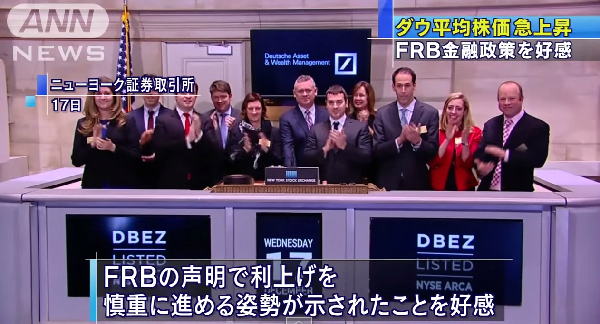
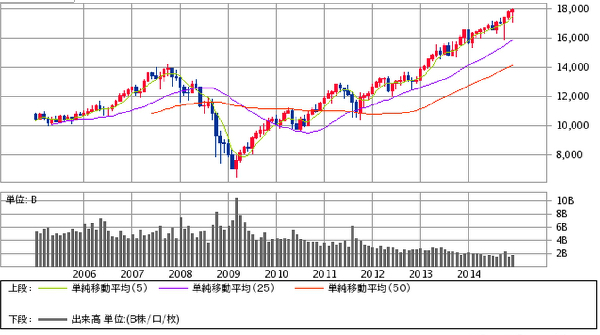

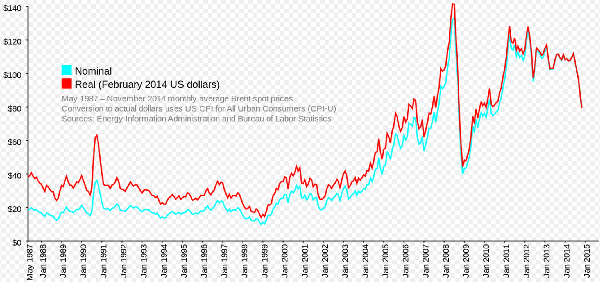
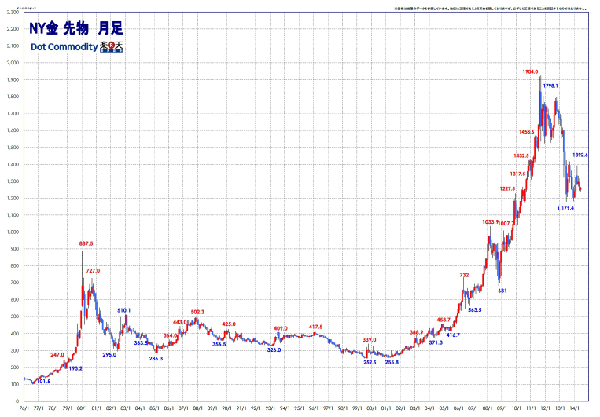
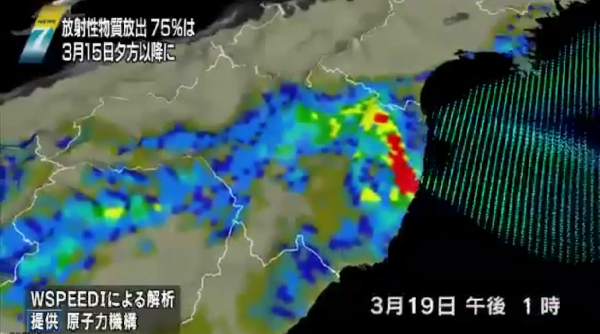
 �@�薼�ɂ͕K���u���C������ցv�ƋL�q���Ă��������B
�@�薼�ɂ͕K���u���C������ցv�ƋL�q���Ă��������B